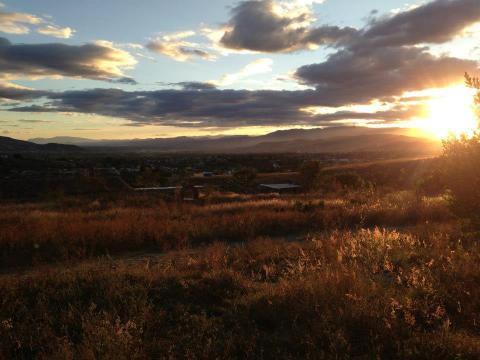
Don and Celine Woznica, Maryknoll Affiliates who are former lay missioners, wrote the following reflection; it was published in A Maryknoll Liturgical Year: Reflections on the Readings for Year B, available from Orbis Books.
“Keep his statutes and commandments, which I am commanding you today for your own well-being and that of your descendants after you, so that you may long remain in the land that the Lord your God is giving you for all time.”
Thus ends the first reading of today’s liturgy. Unfortunately, during tough economic times – times of global recession, foreclosed homes, rising unemployment, lost dreams – it might be hard for us to think of the well-being of either ourselves or our children, not to mention the rest of the world, where many people already live hand-to-mouth.
Add to that our uncertain future as a planet, what with global warming, an increasing population, and a diminishing availability of resources, and we are indeed motivated, as in the second reading, to cry out “Abba, Father,” help us, your people.
We know that we cannot continue to live the way that we do – in the United States alone, 10 percent of households own 72 percent of U.S. wealth, and globally, the U.S. is home to five percent of the world’s population but uses 30 percent of the world’s resources and creates 30 percent of the world’s waste. Put another way, it would take nearly 3-5 Earths for everyone in the world to live at the level of our present U.S. lifestyle. And yet how do we go about changing the way that we live? Is it possible to assume a different lifestyle? Are there other, alternative ways to live that would allow both us and our planet to prosper?
Let us travel in our minds for a moment to Oaxaca, a state in southern Mexico, where Maryknoll lay missioners once served. Specifically we find ourselves in the Mixtec Indian municipality of Santiago Tilantongo. There, land is held communally. In their book, The Other Game: Lessons from How Life is Played in Mexican Villages, former lay missioners Phil Dahl-Bredine and Steve Hicken write, “This means that all of the land belongs not to individuals but to the community as a whole. The community allocates sections of land to families for crop production, and families pass these land parcels on to succeeding generations. The community also maintains grazing and forest land available to all for grazing their sheep and goats and for cutting firewood” (p. 28). Here, in Santiago Tilantongo, the land and its resources are shared among all the people.
Similarly, participation in community activities is a shared experience. “Tequio is a system of community work projects to take care of community needs such as road repair or the construction of small school rooms. It obligates those who want to retain community rights to join in unpaid work in occasional community projects,” to the benefit of all.” (p. 29)
Likewise, participation in community governance is an obligation for all. “As in all of Oaxaca’s indigenous cultures, the village expects each adult man, and now increasingly women also, to fulfill positions in the local indigenous governing systems a few times during his or her lifetime. To prepare for these unpaid positions, people need to accumulate enough resources to support the family during the period in which they will be taken away from their farming work” (p. 29).
Sharing of personal resources, or gueza, is another mainstay of the Mixtec community. This “may mean that neighbor families help out with the costs of a wedding of a son or daughter, and the aid will be mutual when the neighbor families have a need. Or families will interchange work when the time for weeding fields comes, once the spring rains begin. Mixtec villages also appoint annual mayordomos. These individuals take responsibility for paying for all of the food, drink, and entertainment for specific village feast days or fiestas. Because of the economic burden, the community makes every effort to select members whose paid work has produced well. Those selected mayordomos consider themselves honored by their community” (p. 30).
It would be difficult, most likely impossible, for us to transfer the mode of living of rural Oaxacan Indians to our life here in the United States. And yet, if we could modify our way of life, from one of economic competition and accumulation of personal wealth, to one that was more cooperative and sharing of resources, would we not all be better off in the long run? And our planet as well? Perhaps then we would be living the life God intended us to live “. . . that you and your children after you may prosper, and that you may have long life on the land which the Lord, your God, is giving you forever.”
We would indeed be blessed, and, in the words of today’s Psalm, “the people the Lord has chosen to be his own.”
Oaxacan view photographed by Judy Coode
